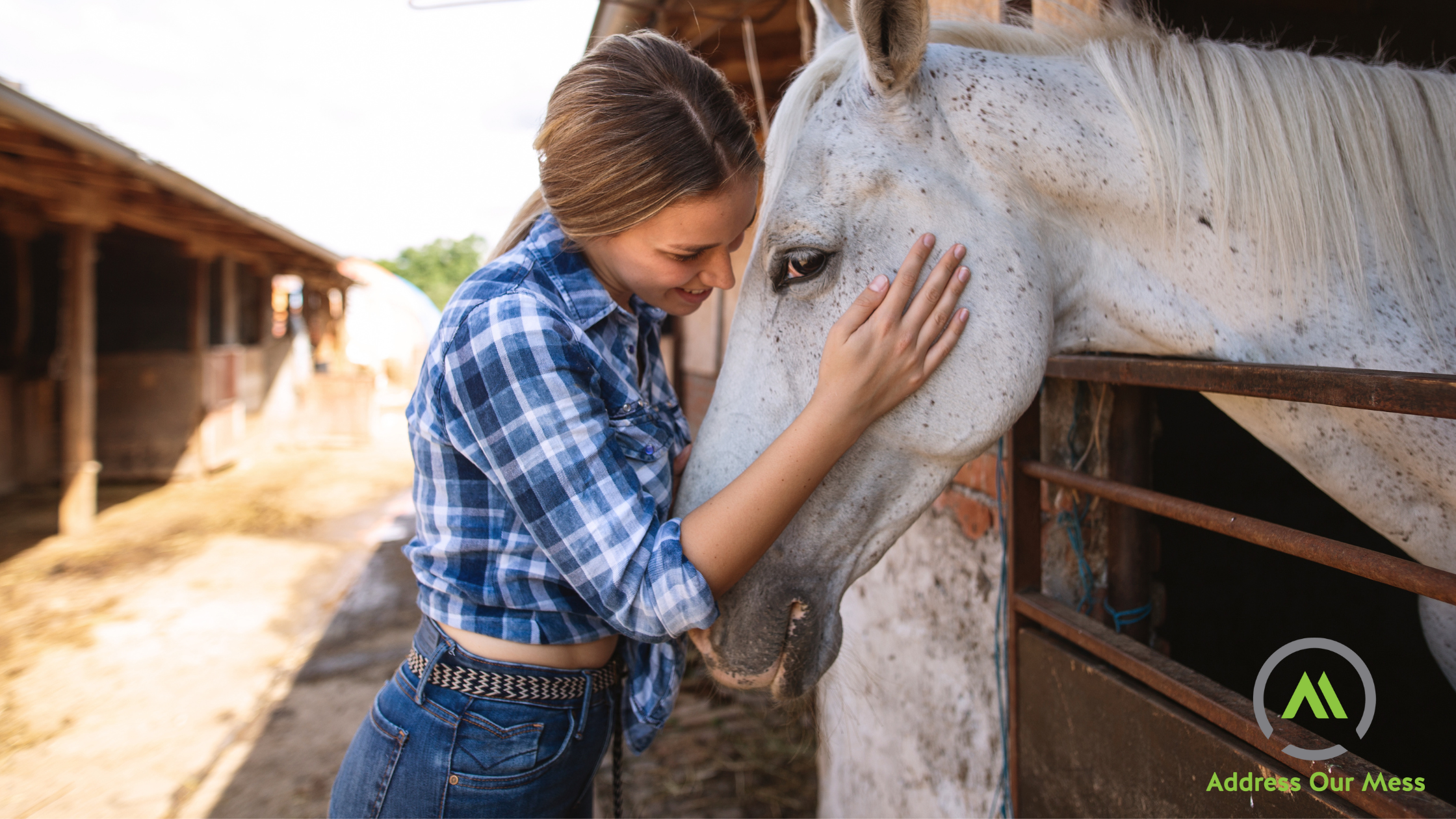
People hoard animals because they cannot see that they are for one reason or another unable to take basic care of their animals. This denial may lead to collecting more animals and or the inability to see that the living conditions are not safe for their animals.
Veterinary Definition of Animal Hoarding (Cummings School of Veterinary Medicine at Tufts University):
“The pathological accumulation of animals was first described in 1981 and animal hoarding was formally defined in the public health literature in 1999 using the following criteria:
- Having more than the typical number of companion animals
- Failing to provide even minimal standards of nutrition, sanitation, shelter, and veterinary care, with this neglect often resulting in illness and death from starvation, spread of infectious disease, and untreated injury or medical condition
- Denial of the inability to provide this minimum care and the impact of that failure on the animals, the household, and human occupants of the dwelling
- Persistence, despite this failure, in accumulating and controlling animals”
Animal Hoarding Further Explained:
- The Decision Making Process
- Trauma
- Isolation
- Family Ties
The Decision Making Process:
A hoarder’s brain makes it next to impossible for them to give away or let go of the animals that they have even though they are not able to take care of the animals properly.
It’s hard for a hoarder to make decisions because they have anxiety about making the wrong choice. Every decision they make comes with the loss of what they didn’t choose and that causes anxiety, indecisiveness, and sadness. Letting go of an animal is a decision, so if they simply keep all their animals even when they are accumulating new ones they never have to make a choice. Not making choices means never dealing with the loss of anything.
Trauma:
Hoarding is often triggered by a traumatic loss or event. Common contributors include divorce, childhood poverty, and death of a loved one. People can start hoarding after such events as a way to avoid grieving. Hoarding becomes a comfort that can allow them to avoid working through the pain of their trauma.
Isolation:
Isolation from other people is also a common reason why people hoard. This is often the case with senior citizen hoarding. As their children and grandchildren move away they are left increasingly alone, especially if they are retired and widowed. This causes people to seek comfort in belongings instead of other people. Once this happens it’s easy to become attached to objects and it’s hard to get rid of anything.
Family Ties:
The International OCD Foundation reports, “50 to 80% of people who hoard had first-degree relatives whom they considered ‘pack rats’ or hoarders.” We learn our behaviors through what we’re exposed to and growing up around hoarding behavior can cause someone to exhibit those tendencies in adult life.
Even though hoarding seems unusual from a non-hoarder’s perspective, hoarding becomes the routine of a hoarder, making it hard to stop. The original cause of hoarding is primarily that hoarders actually have different psychological processes that compel them to keep and collect items and animals that make them different from the non-hoarding population.
Medical definition of hoarding (Mayo Clinic): “Hoarding disorder is a persistent difficulty discarding or parting with possessions because of a perceived need to save them. A person with hoarding disorder experiences distress at the thought of getting rid of the items. Excessive accumulation of items, regardless of actual value, occurs” – Mayo Clinic.
Trending across the United States are cases of severe animal hoarding. Fifteen-hundred new cases are uncovered each year according to Dr. Gary Patronek and Jane N. Nathanson of Tufts University in Massachusetts. Most animal hoarders find their hoarding situations even more difficult than people who typically hoard objects and or food. Animal hoarding is not only unhealthy for pet owners, but for their beloved animals as well.
When pet owners find themselves in an animal hoarding situation, the environment in which they and their pets inhabit are unsanitary. Biohazards are commonly found, including:
- Feces
- Urine
- Dander
- Fleas
- and Other Pet Related Messes
Soiled carpets, furniture, and other pliable materials in the home are breeding grounds for bacteria and viruses. Pets and owners alike could suffer horribly from unsanitary conditions in an animal hoarding environment.
Cleaning an animal hoarding situation is the first step to providing a safer environment for owners and their loving animals. Hoarding cleanup services like Address Our Mess are trained and certified to optimum industry standards. Hoarding specialists are available day and night to ensure the safety of people and their pets. By cleaning up a hoarding situation, animals are able to avoid encounters with bacterial and viral diseases. Their human counterparts can also enjoy a healthier life by reducing the number of allergens in the home while also reducing their risk for encountering disease as well.
Hoarding specialists work closely with animal hoarders to make sure their pets are well taken care of before, during and after the cleanup has taken place. There are different scales of hoarding, so technicians will make sure to properly prepare for any situation they may encounter. They will also ensure privacy is upheld so that pets and their families can enjoy their quality of life long after the hoarding cleanup has ended.
It is important to remember that to love an animal means one must provide a safe, sanitary and healthy environment for them. Just like people, animals are at risk of disease, allergies and sickness. Animal hoarding environments are unsafe for pets and their owners. By contacting Address Our Mess, you can be sure that our specialists will create a happy, healthy environment for the entire family.
Call 410-589-2747, email info@addressourmess.com, or use our contact us page to reach out to us for more information on our Hoarding Cleanup Service. We are here to help!